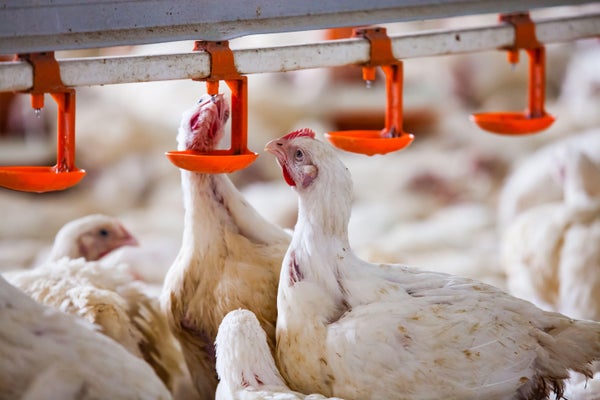CRISPR Will Likely Not Solve Bird Flu
New research shows that CRISPR, the gene editing technique, could make chickens more resistant to bird flu. But its use raises many ethical and scientific issues
Credit: Alexey Rezvykh/Alamy Stock Photo
Recently, a group of scientists announced a breakthrough approach to combat Highly Pathogenic Avian Influenza (bird flu or avian flu), a severe illness of birds that has killed millions of chickens worldwide since it emerged in 1996 and continues to devastate bird populations. This disease has quickly become a potential threat to human health and has affected both food prices and availability.
Their approach uses a gene-editing technique called CRISPR/Cas9. In general, this method changes defined segments of an animal’s genetic code to functionally alter what that code does. In this case, CRISPR was used to alter chickens’ genetic code to make chickens more resistant to avian flu. While this was a fascinating use of the technology, any time scientific innovation affects the food we eat, it becomes a sensitive issue. On top of philosophical concerns regarding the use of CRISPR within our food supply, we think there are too many unpredictable outcomes related to combating avian influenza with CRISPR-modified chickens to expect this technology will be a solution to this destructive disease.
While CRISPR has created almost infinite opportunities to address some of the health-related challenges facing society, including recent therapies for sickle cell disease in humans, it’s not likely to be successful in controlling avian influenza. All avian influenza viruses originate in waterfowl, such as ducks, which serve as a constant source of potentially new viruses to infect poultry populations. Avian flu viruses also readily change—or mutate—their genetic material, allowing the viruses to quickly adapt to different hosts beyond poultry. This ability to quickly evolve also rapidly changes…
Read the full article here







